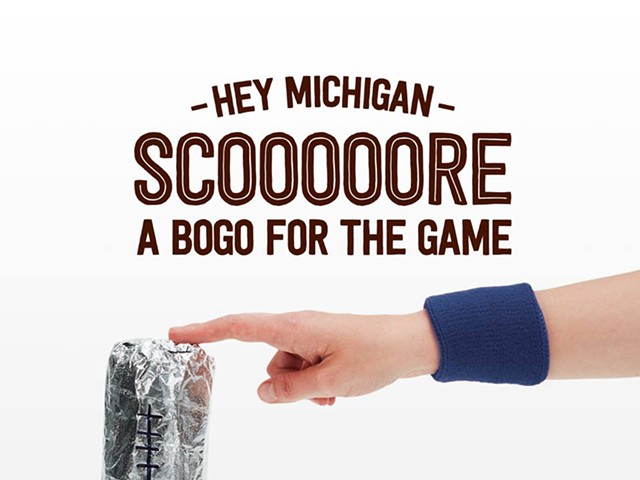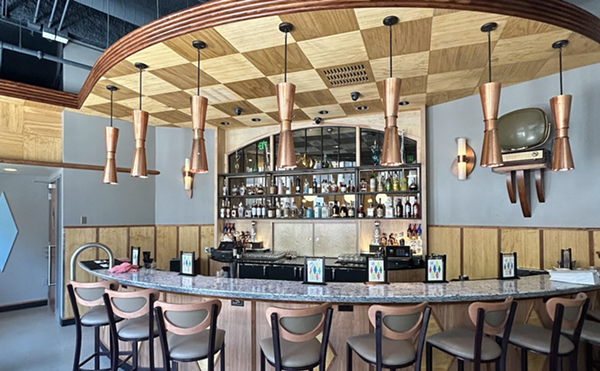I first heard about the new Yemeni restaurant Avenue Grill Plus when a friend posted a story on Facebook. She saw owner Jamil Baadani pack up a to-go box, refuse the 80 cents' worth of change the customer had placed on the counter, and tell him all was set. After the man left, Baadani explained, "He comes in regularly. There are so many people in need these days, and I want to make sure people at least have enough food."
Later, after I'd visited Avenue Grill three times, I told Baadani I wanted to use this story in my review — but would he mind? Might it encourage a flood of more hungry "customers" than he could handle? Don't worry, Baadani said, he's always happy to feed the homeless.
You shouldn't go to Avenue Grill just because the owner is a nice guy, though. You should go if you don't know Yemeni food and want a break from Lebanese — they're very different cuisines. And you should go if you can afford to pay for your meals, but only a little — Baadani's prices are pretty close to charity.
The grill is no one's idea of fine dining. It's in a tiny and unprepossessing strip mall on the Southwest side. Most of the business is carryout, though there are booths. Silverware is plastic (but Baadani splurges on good napkins). If you eat in, you'll be served on a big oval communal platter. It's the food itself, which makes frequent use of the Yemeni seven-spice mix called hawaij, that has produced faithful customers in the grill's first seven months of operation.
Baadani employs a Tunisian cook, who in addition to the Yemeni favorites makes a Moroccan dish involving corkscrew noodles, vegetables, a little ground beef, and hard-boiled eggs. He also produces an excellent golden couscous with raisins, tomatoes, and peas ("you can't get it anywhere else"). It sounds silly to attribute personality to textures, but I always find couscous, with its tiny, almost nutty balls of semolina, kind of amusing. Like a cute child, but without the sweetness.
The restaurant's biggest seller is tabeekh, a bright orange, oven-baked, potatoes-and-vegetables dish in which the potatoes become infused with zucchini flavor. It's spicy, but not over the top. Also called tabeekh (and I'm sure Arabic speakers are laughing behind their hands here) is a different stew with garbanzos, okra, peas, and carrots. I thought I detected cloves in it; Baadani says the closest thing to hawaij is allspice; he also admitted to anise, fennel seeds, ginger, cardamom, and cumin.
Likewise popular is basmati rice, cooked with cinnamon sticks, raisins, and nuts.
Perhaps my favorite dish was lamb, which is cut into seemingly random bony parts, including ribs, and simply baked with hawaij. I see no good way to eat this except with your fingers, and the grill normally supplies just spoons or pita as eating utensils, although we did get a fork once. The meat is crisp outside and luscious with fat throughout, and five pieces set me back $8.84. Stewed chicken with hawaij is also delectable. I found the beef stew lightly spiced and more ordinary.
But maybe that's your thing when you're stopping by to pick up lunch on your way to work, as I met one lady doing. A dish eminently accessible to Americans is fried chicken, Baadani-style. He won't say what goes into the flaky crust, but I tasted plenty of pepper, and the flesh is very, very juicy. Fries are also done right, with a crisp exterior. I saw hot wings and honey barbecue wings on the menu: 30 pieces for $21.99.
My least favorite was, surprisingly, a chicken shawarma sandwich, which has a not-usual, bland, garlic-based but Greek-inspired sauce. The wrap is heavy on pickles, it's huge, and it costs just $5, which almost makes it seem expensive compared to other items. My friend who turned me onto the place said she'd heard others rave about the grill's shawarma — "better than Bucharest" — but she and I did not agree.
For dessert you can get baklava that's brought in from a local bakery, or anomalously, something American delivered from a food service, like cheesecake topped with pecans. Aside from these items, everything is made fresh daily in-house; nothing is held over until the next day.
I remembered being told the same thing at a Hamtramck Yemeni restaurant, that dishes are always prepared when they're to be eaten, never refrigerated and reheated. Myself, I have no such cultural prohibitions and was more than happy with my take-home the next day.






